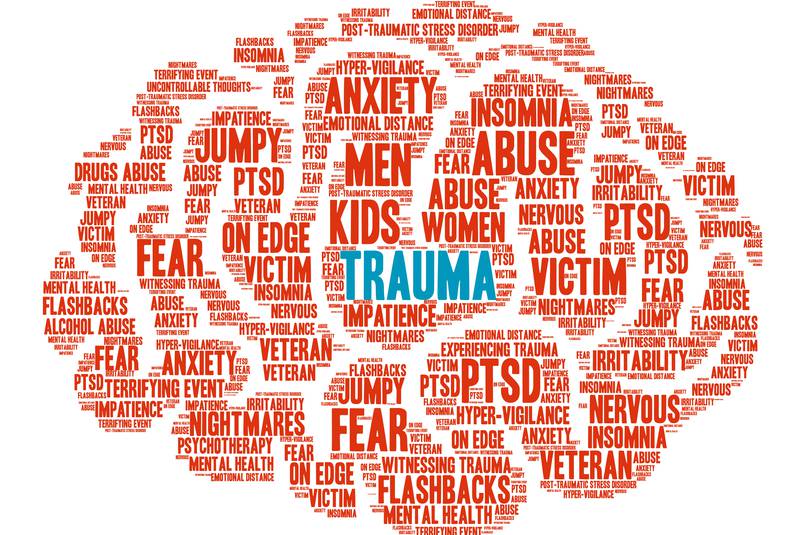
Trauma is defined as the response to a deeply distressing or disturbing event that overwhelms an individual’s ability to cope. Such a life-threatening experience is beyond language, seemingly impossible to articulate leading to feelings of helplessness, diminishing the traumatized person’s sense of self and their ability to feel the full range of emotions and experiences.
We often hear of trauma or PTSD in the lives of veterans returning from the battlefront, or among those who have raped or sexually assaulted. Trauma can also mark those who experience abuse, death, disasters, divorce, and/or great change. And so, it’s fair to say that the longer we live, the more inevitable it is that we will experience trauma.
Psychologists tell us that recovery and healing require that painful emotions be thoroughly processed. When bad things happen, it can take a while to get over the pain and feel safe again. It takes time to overcome the pain of extraordinarily stressful events that shatter your sense of security, making you feel helpless in a dangerous world. Today many believe that the population of our entire country is undergoing a collective experience of trauma related to our political situation.
Our interwoven stories today tell of the trauma of two families and how they impact the larger community. It affects rich and powerful elites (like Jairus) as well as anonymous marginalized persons (like the bleeding woman). Returning from the city-changing healing of the demon-possessed man on the far side of the lake in Mark 5:1-20, Jesus arrives home, encountering life-diminishing trauma even among those who self-identified as the chosen people of God.
The two stories are of a young girl who is literally dead and an older woman who as good as dead. Banished from society because of her ritually unclean state of menstruating for 12 years she is without family, friends, a faith community – seemingly forsaken by God. The girl, daughter of a well-known religious leader should be on the inside track of God’s favor and blessing, and yet this respected family experiences one of the greatest losses known to human existence: the death of a child.
Something about Jesus creates life, heals and restores life in the bodies of the two women and their communities. The Greek word (pistis) used in the text and translated as both “belief” and “faith” means trust. It involves not merely an intellectual agreement with an idea but an emotional commitment and relational connection. This trust is what heals these women trapped in their trauma caused by societal rejection, sickness and death, making the community well.
Questions for the practice of Examen & Contemplation
- What part of today’s passage disturbs or bothers you?
- How and who does Jesus heal in this story?
- How have you known trauma in your life, or know it now?
- How might God be inviting you to healing wholeness, and liberation from helplessness through this text?
Download the PDF Study Guide for the Discussion we’ll have at @CAPCOakland HERE.